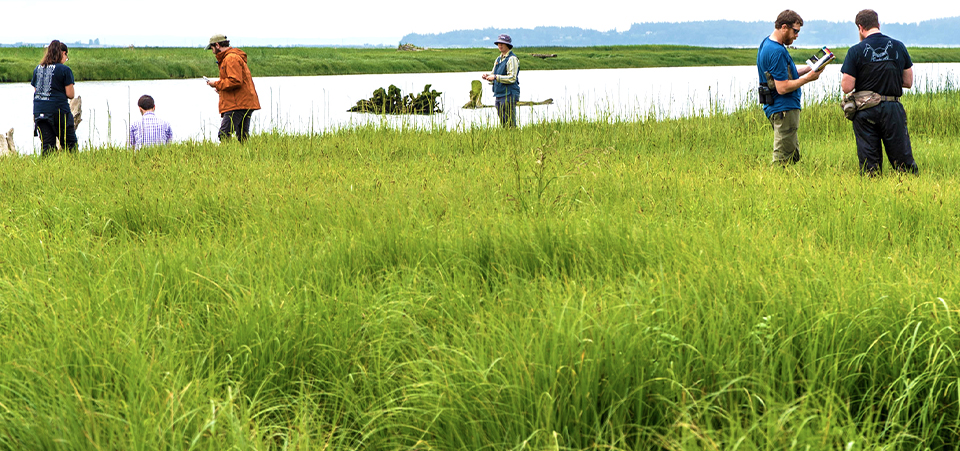Environmental Conservation
Environmental Conservation
Environmental Conservation

Frequently Asked Questions
Program Prerequisites
- Attended a program briefing. This is the only way a prospective program member can receive an application.
- An associate degree by the time of entry into the program with a cumulative GPA of 2.50 or 90cr. equivalent college-level courses (as determined by the department chair).
- Applicants may apply if they anticipate receiving their associate degree before the program start. The acceptance will be conditional, and the degree must be completed before the first day of classes.
- ENGL& 101 – English Composition I and ENGL& 102 Composition II or 10 credits equivalent college-level English with a grade of “C” or better.
- CMST& 220 – Public Speaking or equivalent with a minimum grade of a “C.”
- CHEM& 121- Intro to Chemistry or other lab Chemistry with a grade of a “C” or better.
- MATH& 141 – Precalculus or equivalent.
- GIS 101 – Introduction to Geographic Information Systems or equivalent.
What does applied mean?
This Bachelor of Applied Science program focuses on real-world applications, not just theory-based learning. You will be able to apply the concepts and tools to your current and future work, and the curriculum will ensure you have practice integrating your learning into real-world relevant scenarios.
What is a Bachelor of Applied Science Degree?
A Bachelor of Applied Science is a degree granted by the community and technical colleges to enable those with a non-transfer professional degree to obtain a bachelor qualification. For more information on Applied Science degrees in Washington State, visit Applied Baccalaureate Degrees.
When do classes meet?
Typically we meet for in-person classes, labs, and field trips 3 days a week with some additional field days. All field trip dates are provided at the beginning of the program, there may be some exceptions to this due to weather or site access.
This is not a remote program, in-person attendance required for field trips and labs.
What is the tuition cost?
This affordable option is nearly 2/3 less than the cost of a four-year university. Specific tuition information can be found at: www.skagit.edu/admissions/tuition-fees.
What can I do with this degree?
A BAS degree in Environmental Conservation provides graduates with the flexibility and know-how to move into many different types of work; examples of careers our graduates have:
- Restoration Technician
- Wildlife Biologist
- County Noxious Weeds Coordinator
- Director of Parks and Recreation
- Hatchery Technician
- Hatchery Supervisor
- Community Outreach
- Aquatic Invasive Species Controller
- Forestry Technician
- Habitat Restoration Specialist
- Stormwater Technician
- Environmental Resources Technician
- Tribal Natural Resources Field Coordinator
- Agricultural Inspector
- Environmental Health Specialist
- Tribal Environmental Director, Department of Natural Resources
- Manager Conservation District
- GIS Specialist
- Opening Private Environmental Consultation Firm
Is this an Accredited Program
Yes, this program has been approved by the Northwest Commission on Colleges and Universities, the accrediting body for the colleges and universities in Washington.
Our lab also holds accreditation through the Washington State Department of Ecology (DOE).
Will this degree prepare me for a Master's program?
This accredited Bachelor’s degree prepares students to pursue graduate programs.

